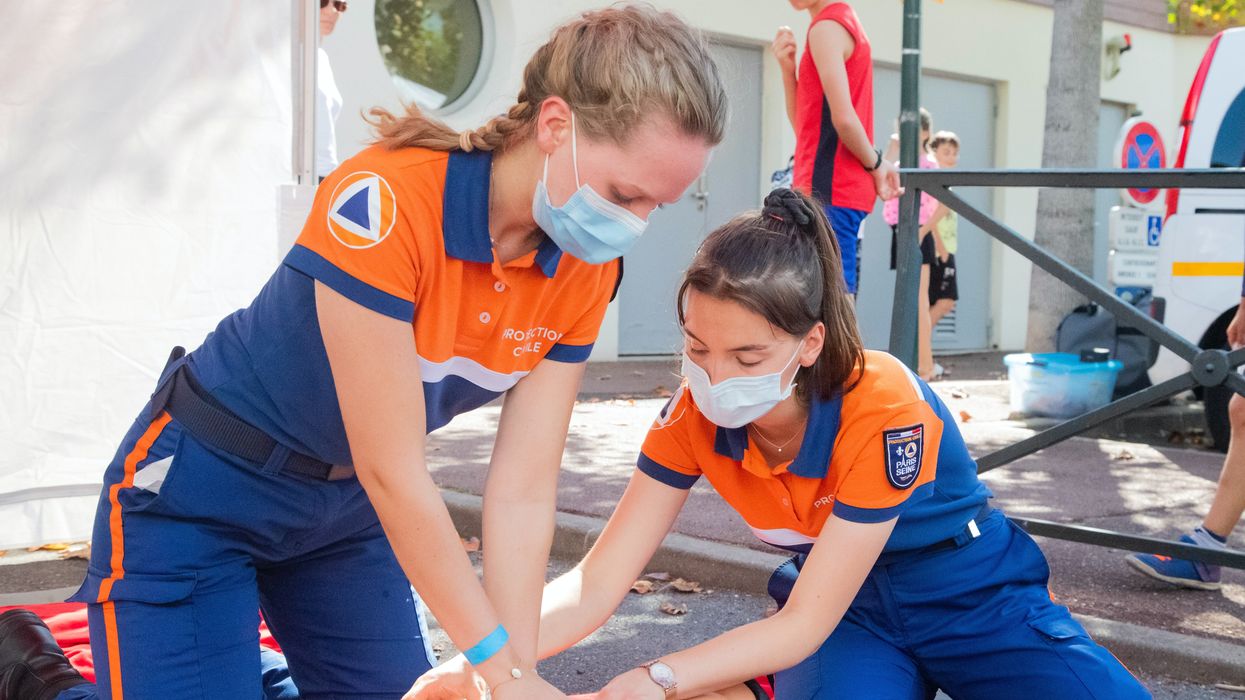Catherine Shuttleworth
Oct 02, 2023

A new study suggests people experience 'new dimensions of reality' when dying
A new study suggests that people experience "new dimensions of reality" when dying, after scientists recorded the brain waves of people in cardiac arrest.
The study suggests that the brain patterns may correlate with alleged 'near-death' experiences such as lucid visions, out-of-body sensations, and a review of one's own life. These sensations have been labelled by scientists as other "dimensions of reality".
The study's results are the first to offer evidence that patient brain waves point to universal elements of near-death experiences.
Sam Parnia, an intensive care doctor and an associate professor in the department of medicine at NYU Langone Health, led the multi-year study. Researchers observed CPR procedures in over 500 patients in 25 hospitals around the world after patients suffering cardiac arrest, most of which were fatal.
Periods of heightened consciousness were captured by Electroencephalogram (EEG) from dozens of the patients, occurring up to an hour after cardiac arrest. Only 53 patients from the study were resuscitated. Of the survivors 11 reported a sense of awareness during CPR, and six reported a near-death experience.
Parnia and his colleagues searched for specific brain waves in dying people, to link the experiences often reported by those with a near-death experience. Between 2017 and 2020, the team studied hundreds of comatose patients who were undergoing CPR at a hospital. Getting EEG readings was challenging, with researchers having to record brain activity during the brief breaks between chest compressions. But they managed to capture biomarkers of lucid consciousness in several patients long after initial cardiac arrest.
According to Parnia and his colleagues, the transition from life to death can trigger a state of disinhibition in the brain that "appears to facilitate lucid understanding of new dimensions of reality - including people's deeper thoughts - all memories, thoughts, intentions and actions towards others from a moral and ethical perceptive".
Speaking to VICE's Motherboard, Parnia said that patients "have consistently reported" when CPR is being performed on them and they are in cardiac arrest that "from their own inner perspective, they find that they're fully conscious". This is despite doctor's perspectives that patients "appear to be in a coma and totally unresponsive".
Parnia went on to say: "[Patients] have an inner experience and their consciousness is not only there but it's heightened to a level that they've never experienced before. Their thoughts become sharper than usual, and clearer than usual."
"Most doctors are taught and believe that the brain dies after about five or 10 minutes of oxygen deprivation," Parnia said. "One of the key points that comes out of this study is that that is actually not true [...] What we were able to show is that actually, the brain can respond and restore function again, even after an hour later, which opens up a whole window of opportunity for doctors to start new treatments."
The study was published in Resuscitation.
Sign up to our free Indy100 weekly newsletter
Have your say in our news democracy. Click the upvote icon at the top of the page to help raise this article through the indy100 rankings.
Top 100
The Conversation (0)













